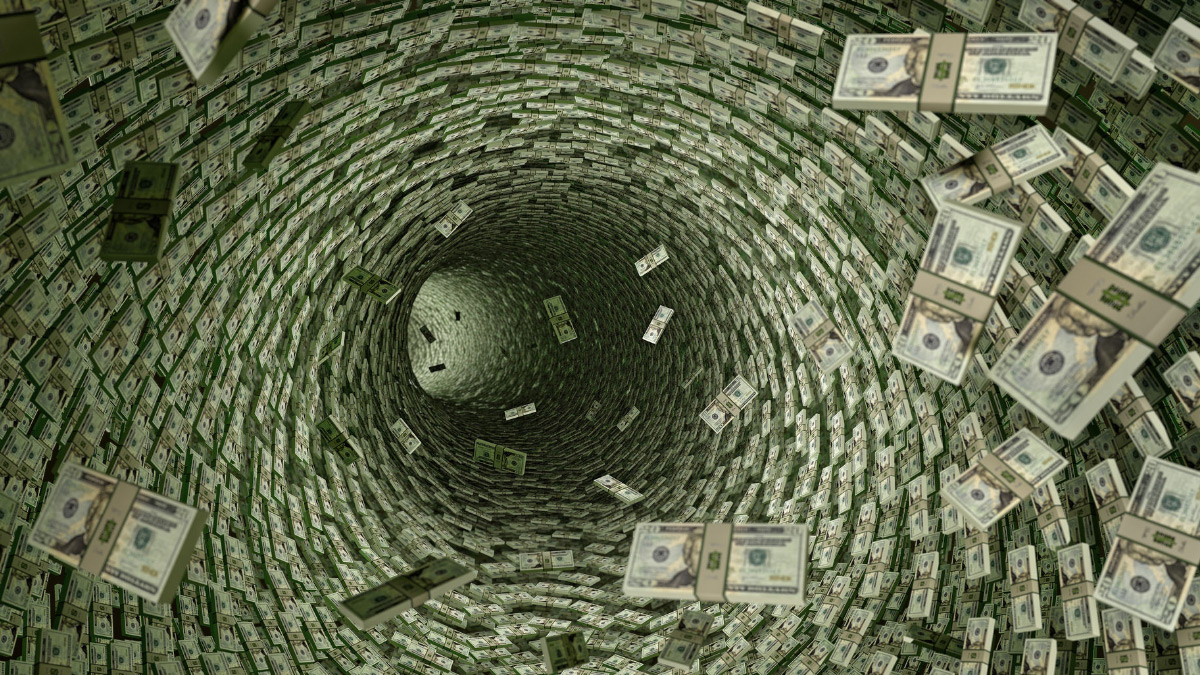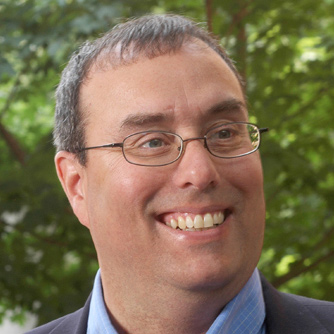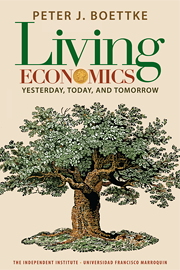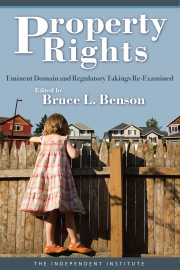To the Austrians, economics is not a tool of social control. My latest book, Living Economics: Yesterday, Today, and Tomorrow, describes freethinking economic study as a framework for helping us understand humanity, its history, and our plight in the world. Nobel Laureate F.A. Hayek said that the curious task of economics is “to demonstrate to men how little they really know about what they imagine they can design.” The economist is nothing more than a student of society. That understanding and approach to analyzing past and present economic issues are the essence of Living Economics.
In the mid-twentieth century, and going up through the 1970s, the economy was envisaged like a bathtub. One spigot was monetary policy and the other was fiscal policy, and an economist’s task was to turn those spigots on to make sure the water rose to the level in the bathtub that was consistent with full employment.
Austrian school economists Ludwig Von Mises and Friedrich Hayek stood in complete opposition to that view. What Mises and Hayek understood is that this whole way of thinking about the economy reflects a “pretence of knowledge”—that we can somehow know what the full employment output level would be, that we could know exactly how much water to let in and how much to let out. In reality, if we make a mistake with any part of that equation, the water comes gushing out all over our bathroom floor, or it drains completely out and we have nothing. This belief that social sciences should be like social physics is built on an assumption that Mises said you could not make.
As I examine in Living Economics, our true free-market heritage can be found in the earlier writings of Thomas Aquinas and other Christian scholars in the Middle Ages; later Adam Smith, Jean-Baptiste Say, and Frederic Bastiat; then Austrian School founder Carl Menger, and Mises and Hayek in the twentieth century.
In recent years, many have questioned the market’s inherent ability to recover from recession without government intervention. Currently, we find ourselves on the road to economic ruin, with big bailouts that have failed to restore consumer confidence. Americans have this big bill in the form of a crippling national debt. There’s anger out there—that politics is no longer connected to the people, but rather to special-interest groups. However, they aren’t just frustrated with Nancy Pelosi and Harry Reid—they’re not big fans of George W. Bush’s record, either. Their quest for answers leads them to watch Glenn Beck, who may sometimes reference classical liberalism. Then, they start reading Hayek. Thus, it’s irrelevant to the scholarly assessment of the ideas of Hayek to point out that Glenn Beck likes him, just as we shouldn’t look at Paul Krugman’s ideas differently because Rachel Maddow likes them.
As I explore throughout Living Economics, the ideas of individual choice are a means to an end. Although the greatest teachers of economics have stressed this, economics as it is currently taught often deemphasizes studying real-world problems and dwells too much on nonessentials. We need to return to the discipline of economics’s original mission: to make sense of human action, examine the puzzles and problems that captivate most people, and communicate the findings to a public sorely in need of understanding. Greater economic reasoning and analysis can vastly enrich our understanding of political decision-making, civil society, property rights, and the legal system. By putting the “political” back into political economy (the name for the discipline in its early days, when it focused more on public issues), economists can greatly improve economic literacy and greatly improve human well-being.












